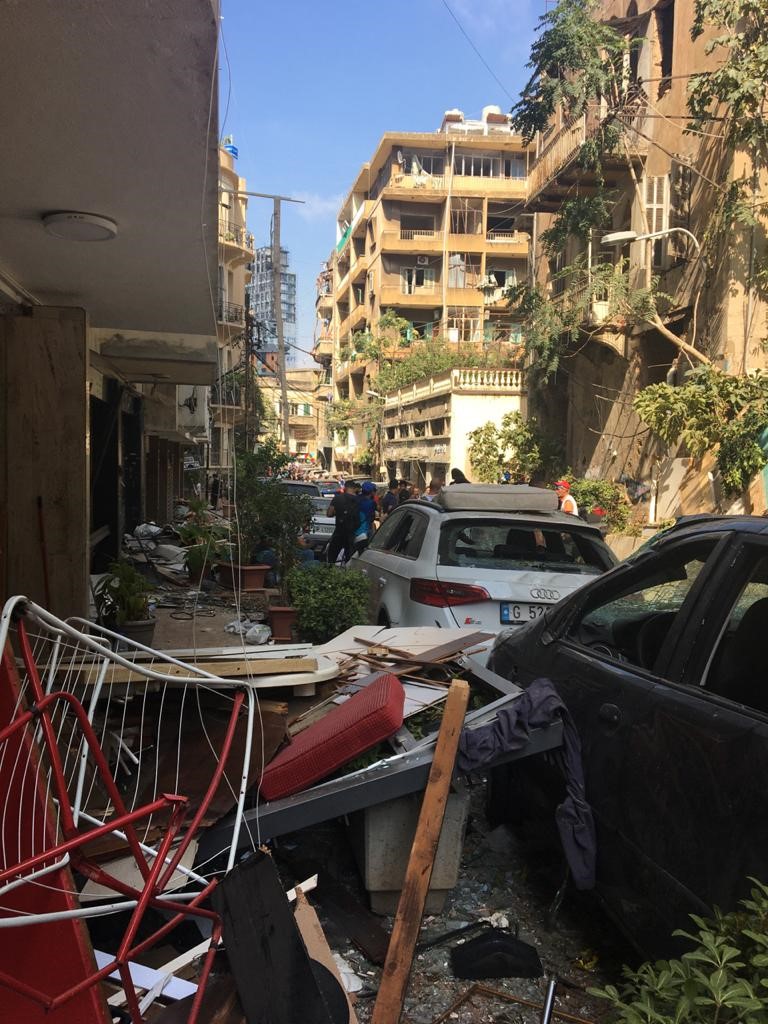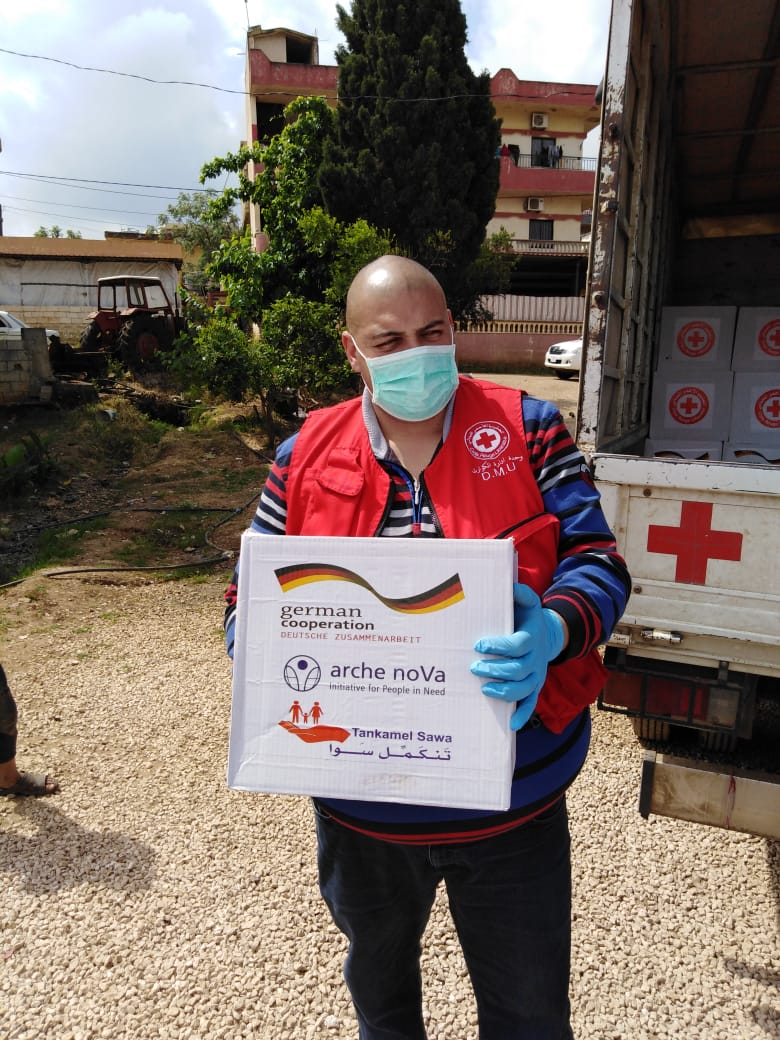On day three after the dramatic explosion in the port of Beirut, the catastrophe becomes really clear: everything within a radius of several kilometres is destroyed and devastated, metal parts and glass splinters are everywhere and the port facilities, practically the heart of the Lebanese capital, through which more than 80 per cent of all the country's consumer goods arrive, are a single ruin. At the same time, the clean-up and rescue work has begun and aid organisations are trying to determine the acute need for help. The Lebanese Red Cross had contacted arche noVa the morning after the disaster with a request for support, as they know them to be a reliable cooperation partner in crisis situations. At the moment there is mainly a lack of medical equipment on site, but also of medicine, blood reserves and protective equipment for the medical staff. The hospitals in Beirut were already overloaded before the catastrophe on Tuesday, quite a few are now destroyed by the force of the detonation, which makes the situation even worse, explains arche noVa employee Muriel Schockenhoff.
The Freiburg native has been living in Lebanon for two years and works there as a project consultant. On Tuesday she travelled back to Beirut from her summer holiday in Germany and the associated working visit to our headquarters in Dresden. Her two Lebanese colleagues picked her up at the airport in the late afternoon to drive to Tripoli together. The second largest city of Lebanon - where the arche noVa project office is based - is located a good hour north of the capital.
„Als wir am Hafen vorbei fuhren, sahen wir schon mehrere Feuerwehrautos, kurz darauf standen wir im Stau und hörten die erste Explosion direkt hinter uns, kurz darauf knallte es zum zweiten Mal. Wir wussten überhaupt nicht, was los war. Wie durch ein Wunder hatte unser Auto nur eine Delle im Dach, während rundrum überall Scherben und Trümmer lagen. Erst als wir in Tripoli ankamen und ich die Bilder in den Nachrichten sah, begriff ich, was für ein Glück wir gehabt haben.“
"As we drove past the port, we already saw several fire engines, shortly afterwards we were standing in a traffic jam and heard the first explosion right behind us, shortly afterwards it banged for the second time. We didn't know what was going on at all. As if by a miracle our car had only a dent in the roof, while all around there were shards and debris. It wasn't until we arrived in Tripoli and I saw the pictures on the news that I realized how lucky we were," says Muriel Schockenhoff about the dramatic events on Tuesday evening in Beirut.
The members of the Lebanon team are now pushing hard to assess the situation and help where it is most needed.
"You don't really know where to start and where to stop to explain what the situation in Lebanon is like at the moment," says Muriel Schockenhoff. The economic impact of the Corona pandemic is catastrophic, she says. Now this disaster in the capital, the ongoing political protests - and all this in a country that has been on the limit for years. "You have to imagine that the people here are fighting for survival," Schockenhoff emphasizes.
Once again, the horrendous food prices have risen, bottlenecks are threatening and with them hunger and need. Almost half of the people in Lebanon live below the poverty line, 35 percent of the people are unemployed. Even the rather affluent middle class is now threatened by poverty as jobs are lost, money reserves are frozen and the currency is constantly depreciating in value.
In addition to Lebanese families, the distress is also affecting the approximately 1.5 million Syrian refugees, some of whom have been living or tolerated in Lebanon for almost ten years.
"Our focus therefore remains above all on the densely populated refugee areas in the north of Lebanon and in the Beeka Plain, where help is now more necessary than ever and where we have been providing support together with local partner organizations for several years," emphasizes Mathias Anderson, managing director of arche noVa, the strategy.
Since 2015, arche noVa has been working on a school project, which is financed by the Saxon State Chancellery among others, in the Beeka Plain, where a particularly large number of refugees live. Together with the Lebanese partner organisation "Society for Social Support & Education", lessons for almost 900 refugee children are being realised there by renovating classrooms, distributing school materials and paying teachers. In Northern Lebanon and the Akkar region, we have been implementing a WASH project together with the local organisation Tankamel Sawa since 2018. Here, funds from the German Federal Ministry for Economic Cooperation and Development and private donations are being used to renovate municipal water supply systems and to replace toilets, wash basins and drinking water tanks in schools.
In the past months, more than 13,000 hygiene packages with soap, cleaning and disinfection materials have been distributed in both projects to contain the corona pandemic and to provide the population with health care through targeted hygiene measures and information. More information is available here.
arche noVa is still reliant on your donations.















